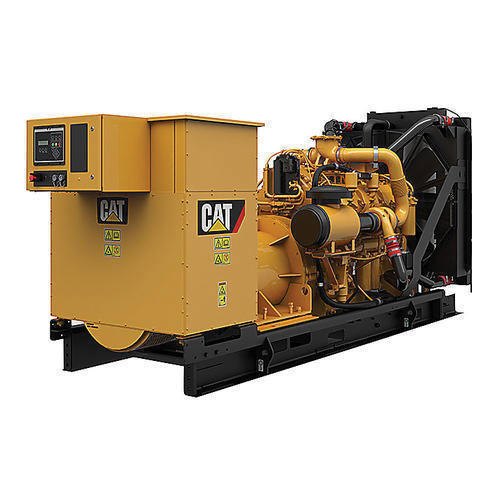
GENERATORS: THE LAST LINE OF DEFENSE
By Barry Aruda
SPRING 2020
If you’re reading this article, I can say with some certainty that life has probably changed for you over the last two weeks. Since the emergence of the world pandemic, Covid-19, life has been anything but normal for every individual on our planet and, like a line of dominoes meticulously stacked, every single portion of our lives has been affected by the virus. It starts with a cough, leads to sickness, schools and businesses close, jobs are lost, and the crisis continues to hurt our families and economy in ways none of us would have imagined only one month ago.
Still, even in crisis-mode, the United States must continue to work in some capacity. Police and fire departments are still open and operating. Hospitals are working overtime, cycling in new patients to be treated as they push toward capacity, and businesses like heating oil and propane companies work as they always have—protecting each of us from the cold. In the fleet world, trucks are running non-stop to keep grocery stores and pharmacies stocked.
Meanwhile, in all of the chaos we are wandering through, there is a particular chunk of the diesel world that is keeping us safe, even if that is simply doing nothing at all—waiting for its opportunity to shine and do what they’re supposed to do: generators.
Hospitals have them. Grocery stores have them. Police and fire departments have them. Every essential business must have a generator at the ready, ensuring that if (quite possibly, when) the power goes out, that the essential services can continue. Life-saving ventilators will run, emergency dispatch will receive your call and, yes, the lettuce on the produce shelves will remain moist and fresh. Each of these things, and many more, can continue by virtue of quality, on-spec, diesel fuel stored in a bulk tank for the generator.
So, let me pose this question to you, since most of us have been in some form of relative isolation since the Covid-19 virus reared its ugly head: what do you suppose would happen to your body if you remained sitting absolutely still for an entire month, only allowing a single 20-minute break to stand and walk around? Seems horrible to think about—muscles growing catatonic, spine stiffening, legs losing all feeling.
Nobody could (or should) take on that challenge, but it’s one that our generators take on every single day. Using my example above, the average generator only “exercises” 20 minutes a month, cycling diesel fuel into whatever fuel line and combustion chamber its attached to. And, like your body, the diesel fuel inside that generator will break down over time. It’s not a question of if, rather than when. I’ve spoken with many of you over the years about moisture in fuel, in bulk tanks, and the havoc it creates over a surprisingly short period of time. We’ve talked about the importance of good housekeeping as it relates to fuel storage, and the perils of not testing and analyzing fuel that may soon be delivered into your customer’s basement oil tank.
The story continues here, in the world of generators, and it has never been more important that now, as we face a crisis that relies on the essential businesses we count on to work. As a brief recap, I will remind you that moisture hosts a breeding ground for bugs—anaerobic yeasts and fungi that excrete acetic acid, which is highly corrosive to steel and other metals commonly found in our industry. When they’re done eating your fuel and creating their concoction of corrosion, they die off, making room for their offspring. And, when they die off, they sink to the bottom of your tank, contributing to the black sludge that is commonly found during bottom sampling.
Moisture, if you weren’t already aware, is inside all diesel fuel, you can’t help that. What you can do is ensure that the fuel inside your generator tank is as dry as it can be. To maintain fuel and keep it on spec, a few things can be done, including bottom testing of tanks, installing desiccant dryer units to the vent pipes, and dosing the fuel with appropriate chemical additives. Unfortunately, much like our valued healthcare workers, it’s nearly impossible to make a diagnosis on where your tank is without sampling and analysis. As a fuel quality consultant, it is always my recommendation that facility and/or electrical managers work with professionals to collect and analyze their generator bulk tank samples to make sure the fuel is in good condition before there is an outage.
Fuel-drying agents and biocide packages are always important to consider when a problem is discovered. If Covid-19 has produced anything in the way of positivity for our industry, it has helped illuminate something that most of us have overlooked—diesel generators need more care and attention than your average bulk tank. The fuel sits relatively stagnant more than anywhere else in the industry. Would you drink a glass of water that had been left on the counter for 30 days, exposed to condensation and microscopic particulate matter that makes up the atmosphere around us? Probably not. There’s a chance you might get sick. And, in some irony, that’s what many of the generators I visit have become.
The bottom samples too often come back up ugly, with black particulate and water in the base of the sample bottle. “God, look at that sludge,” one facility manager at a hospital in Concord, New Hampshire remarked, clearly unaware of the problem in the underground storage tank. He was concerned, and rightfully so. If the power grid goes down at a hospital and the generator chokes on bad fuel, it only takes minutes before serious problems inside the building can occur. Breathing machines and automated drip-control systems must work. It’s that simple.
Examination of your current generator practices and stabilization of fuel is crucial, now, like never before. This practice of testing and diagnosing the problem proactively is something you should absolutely consider. Diesel has been reliable for over 125 years, and we’ve had great success with it. It wants to work for you. We owe it to the customers we serve in dozens of industries to make sure it is healthy and on-spec. The reality we face now in this pandemic has only magnified the issue.
How healthy is your fuel? If you’re unsure, now is the time to reach out. We, like you, are essential and are willing to help.
Barry Aruda is the Northeast Regional Manager for Advanced Fuel Solutions. As an admitted “fuel quality fanatic,” he spends a great deal of his full-time job testing fuel for analysis, recommending preventative defensive strategies, and working with dealers to overcome the challenges of housekeeping and changing technology.

